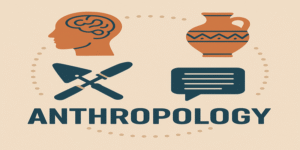Career and employability skills are essential abilities and attributes that individuals must develop to succeed in the workplace and advance in their careers. These skills extend beyond technical expertise or academic qualifications, encompassing a wide range of competencies that are highly valued by employers across industries (Hillage & Pollard, 1998). In today’s dynamic and ever-changing job market, it is crucial to possess and continually develop Career and employability skills to maintain a competitive edge.
Below is an Overview of Key Career and Employability Skills:
1.0 Communication Skills
Effective communication is fundamental to professional success, as it allows individuals to convey ideas, information, and feedback clearly and professionally. Communication skills encompass a variety of forms, including verbal, non-verbal, and written communication, as well as active listening and interpersonal skills. Verbal communication involves speaking clearly and persuasively in meetings, presentations, and one-on-one conversations, while written communication requires the ability to articulate ideas through emails, reports, and other documents. Active listening ensures that individuals fully understand the message being conveyed, fostering better collaboration and reducing misunderstandings. Additionally, strong interpersonal skills facilitate positive interactions with colleagues, clients, and other stakeholders, which are vital for building relationships and promoting teamwork (Wrench et al., 2008).
2.0 Teamwork and Collaboration
In today’s collaborative work environments, the ability to work effectively as part of a team is highly valued by employers. Teamwork and collaboration require individuals to work alongside colleagues, contribute ideas, and respect diverse perspectives. Successful collaboration also involves being open to feedback, resolving conflicts constructively, and supporting the team’s collective goals. As Katzenbach and Smith (1993) point out, high-performing teams are characterised by a shared commitment to achieving objectives, and individuals who can navigate team dynamics and foster a collaborative environment are critical to the success of any organisation. The ability to work well in a team also leads to increased innovation and efficiency, as different viewpoints and skill sets come together to tackle challenges.
3.0 Leadership Skills
Leadership is not only about managing others but also about inspiring and motivating people to work towards common goals. Leadership skills are essential for career advancement, as they involve the ability to take initiative, make decisions, and guide others. Effective leaders exhibit qualities such as decisiveness, problem-solving abilities, and the capacity to delegate tasks appropriately (Northouse, 2018). Strong leaders also empower their teams by fostering a culture of trust, providing support, and encouraging personal and professional growth among team members. While leadership roles are often associated with managerial positions, leadership skills are valuable at all levels of an organisation, as they contribute to a positive and productive workplace culture.
4.0 Adaptability and Flexibility
In an era marked by rapid technological advancements and shifting market demands, adaptability has become one of the most sought-after employability skills. Employers seek individuals who can embrace change, learn new skills quickly, and thrive in dynamic work environments. Adaptability involves the willingness to step outside one’s comfort zone and take on new responsibilities as needed. Flexibility, on the other hand, refers to the capacity to adjust one’s approach to meet the demands of different situations (Beechler & Woodward, 2009). Together, these skills enable employees to remain resilient in the face of uncertainty and to contribute effectively to the success of their organisation, even when faced with unexpected challenges.
5.0 Problem-Solving Skills
Problem-solving is a core competency that is crucial in virtually every industry. It involves the ability to identify challenges, analyse root causes, and develop practical solutions. Employers value individuals who can think critically, troubleshoot issues, and make sound decisions under pressure (Dewey, 1910). Problem-solving skills are closely linked to creativity and innovation, as employees who can approach problems from multiple angles are more likely to find effective and efficient solutions. Moreover, the ability to solve problems independently reduces the need for constant supervision and allows employees to take ownership of their work, enhancing their contribution to the organisation.
6.0 Critical Thinking
Critical thinking is another key skill that is closely related to problem-solving. It involves the ability to analyse information, evaluate arguments, and make informed decisions. Critical thinkers question assumptions, assess evidence, and approach problems with a logical and analytical mindset. In today’s complex and fast-paced work environments, the ability to think critically is essential for making strategic decisions and driving innovation (Facione, 2011). Employees who can apply critical thinking skills to their work are more likely to identify opportunities for improvement, foresee potential challenges, and make sound judgments that benefit the organisation.
7.0 Time Management and Organisation
Strong time management and organisational skills are critical for maximising productivity and ensuring that tasks are completed on time. Effective time management involves setting priorities, creating schedules, and adhering to deadlines, while organisational skills refer to the ability to manage resources, including time, materials, and information, efficiently (Macan et al., 1990). Employers value individuals who can balance multiple responsibilities without sacrificing the quality of their work. Those who demonstrate good time management are often perceived as reliable, responsible, and capable of handling greater levels of responsibility within the organisation.
8.0 Digital Literacy
In the digital age, proficiency with technology is no longer optional; it is essential for success in many career paths. Digital literacy includes the ability to use computer software, navigate the internet, and understand data analysis. As new technologies continue to emerge, employees must also demonstrate the ability to adapt to and integrate these tools into their work processes. Digital literacy is particularly important in industries that rely on data-driven decision-making and automation (Martin, 2006). Furthermore, as remote work and virtual collaboration become more prevalent, the ability to use digital tools effectively has become a critical component of employability.
9.0 Professionalism
Professionalism encompasses a range of behaviours and attributes that reflect an individual’s commitment to ethical standards and workplace etiquette. This includes qualities such as integrity, reliability, accountability, and respect for others (Sullivan, 2005). Demonstrating professionalism in the workplace not only enhances one’s reputation but also fosters a positive work environment. Employers value employees who are dependable, punctual, and respectful in their interactions with colleagues, clients, and stakeholders. Professionalism also involves maintaining a positive attitude, even in challenging situations, and adhering to company policies and procedures.
10.0 Networking and Relationship Building
Networking and relationship-building are essential for career development and advancement. Building a strong professional network allows individuals to connect with industry peers, share knowledge, and open doors to new opportunities (Burt, 1992). Networking involves attending industry events, participating in professional organisations, and maintaining relationships through regular communication. Effective relationship-building also contributes to personal and professional growth, as individuals can learn from the experiences and expertise of others. Employers appreciate employees who can establish and maintain positive relationships with clients and other stakeholders, as these relationships are often key to the organisation’s success.
Career and employability skills are vital for succeeding in today’s competitive job market. By developing and demonstrating key skills such as communication, teamwork, leadership, adaptability, problem-solving, and digital literacy, individuals can enhance their career prospects and contribute to the long-term success of their organisations. Moreover, cultivating professionalism, critical thinking, time management, and networking abilities further supports career growth and satisfaction. The development of these skills should be a continuous process, as the demands of the workplace evolve, and new opportunities arise.
References:
Beechler, S., & Woodward, I. C. (2009) The Global War for Talent. Journal of International Management. 15(3), pp. 273-285.
Burt, R. S. (1992) Structural Holes: The Social Structure of Competition. Harvard University Press.
Dewey, J. (1910) How We Think. D.C. Heath & Co.
Facione, P. A. (2011) Critical Thinking: What It Is and Why It Counts. Insight Assessment.
Hillage, J., & Pollard, E. (1998) “Employability: Developing a Framework for Policy Analysis.” Research Brief No. 85. Department for Education and Employment.
Katzenbach, J. R., & Smith, D. K. (1993) The Wisdom of Teams: Creating the High-Performance Organization. Harvard Business Press.
Macan, T. H., Shahani, C., Dipboye, R. L., & Phillips, A. P. (1990) “College Students’ Time Management: Correlations with Academic Performance and Stress.” Journal of Educational Psychology. 82(4), pp. 760-768.
Martin, A. (2006) Essential Computer Applications for Hospitality Management. Educational Institute of the American Hotel & Motel Association.
Northouse, P. G. (2018) Leadership: Theory and Practice. 8th ed. Sage Publications.
Sullivan, S. E. (2005) “The Changing Nature of Careers: A Review and Research Agenda.” Journal of Management. 31(6), pp. 895-929.
Wrench, J. S., McCroskey, J. C., & Richmond, V. P. (2008) Human Communication in Everyday Life: Explanations and Applications. Allyn & Bacon.









